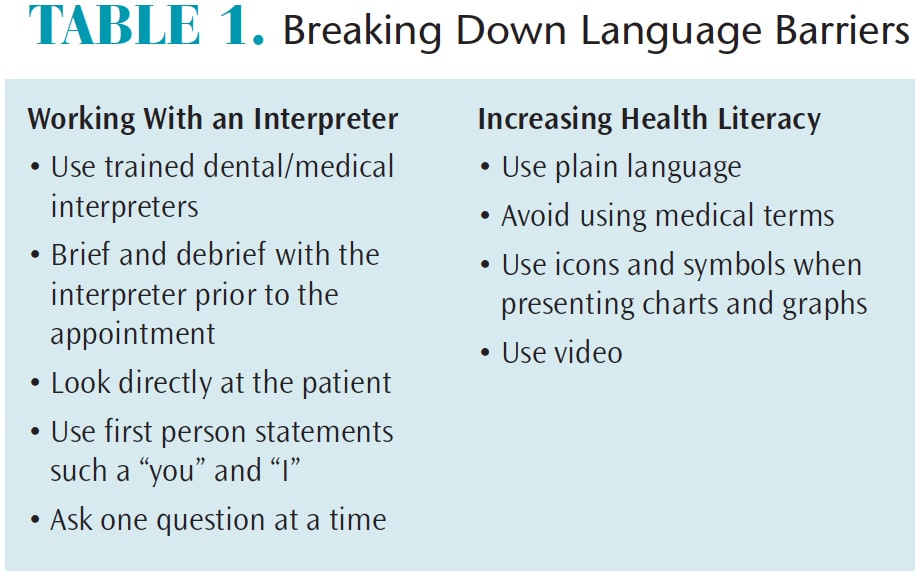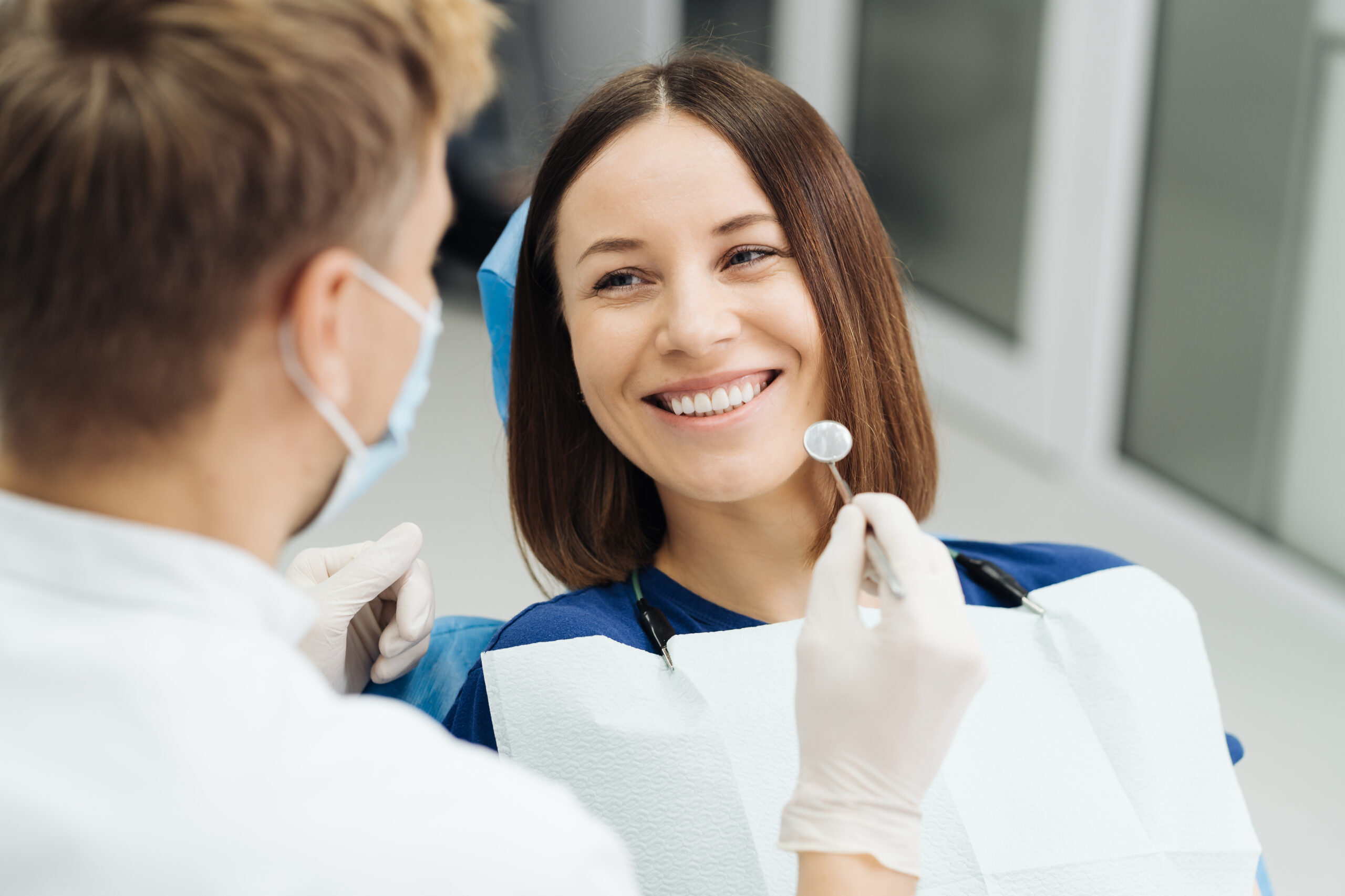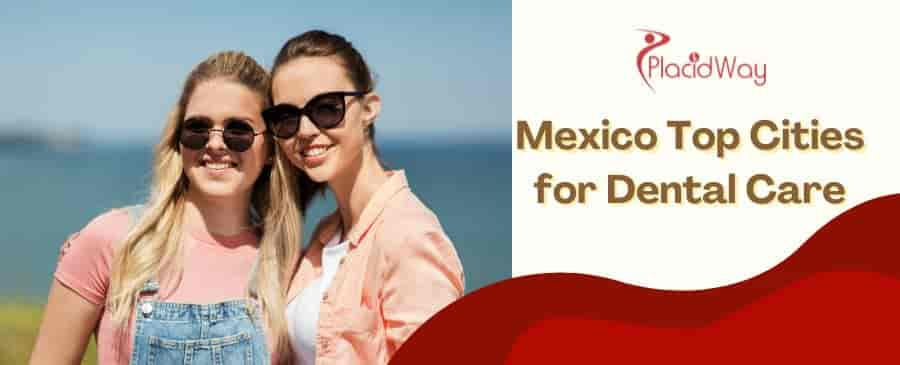If you’re considering dental tourism, it’s important to be aware of the potential language barriers you may encounter. When seeking dental treatment in a foreign country, communicating with your dentist and understanding the procedures is crucial for a successful and safe experience. In this article, we will explore some tips and strategies for navigating language barriers in dental tourism, ensuring that you can effectively communicate your needs and concerns while receiving quality dental care abroad.
Table of Contents
ToggleChoosing a Destination
When it comes to dental tourism, choosing the right destination is crucial for a successful experience. Researching popular dental tourism destinations can help you narrow down your options. Look for countries known for their high-quality dental care and affordable prices, such as Mexico, Thailand, Hungary, or Costa Rica. Additionally, consider factors such as travel accessibility, safety, and the availability of tourist attractions to make your stay enjoyable. Take the time to evaluate each destination based on your specific needs and preferences.
Researching popular dental tourism destinations
Before making any decisions, it’s important to thoroughly research popular dental tourism destinations. Look into the reputation and qualifications of dental professionals in each country. Read reviews and seek recommendations from previous dental tourists to understand their experiences. Consider the range of dental treatments offered, as well as the availability of specialized procedures. By doing your due diligence, you can find a destination that offers both top-notch dental care and a fulfilling travel experience.
Factors to consider when choosing a destination
When choosing a dental tourism destination, there are several factors you should consider. Firstly, assess the cost of dental procedures in each country. While affordability is often a major draw of dental tourism, remember that the cheapest option may not always provide the highest quality of care. Look for a balance between cost-effectiveness and the expertise of dental professionals. Additionally, consider the travel logistics, including flight costs, visa requirements, and the overall ease of getting to and around your chosen destination. Lastly, think about the cultural and language aspects of the country. Familiarize yourself with the customs, etiquette, and cultural norms to ensure a smooth and respectful experience.
Understanding the availability of English-speaking dental professionals
As an English-speaking dental tourist, it’s important to assess the availability of English-speaking dental professionals in your chosen destination. While some dental clinics may have bilingual staff who can communicate effectively in English, others may have limited English proficiency. Look for clinics that explicitly advertise their English-speaking services or have positive reviews from English-speaking patients. By choosing a dental clinic where you can comfortably communicate with the dental professionals, you can ensure a smoother and more efficient experience throughout your dental treatment.
Preparation Before Departure
Preparing in advance can greatly enhance your dental tourism experience. Learning basic dental terms in the local language can help you communicate your needs and understand the procedures better. Simple phrases such as “toothache,” “filling,” or “cleaning” can go a long way in facilitating clear communication with the dental professionals. Additionally, make use of translation tools and apps that can assist you during your trip. From pocket translators to smartphone apps, there are various options available that can overcome language barriers and help you communicate effectively.
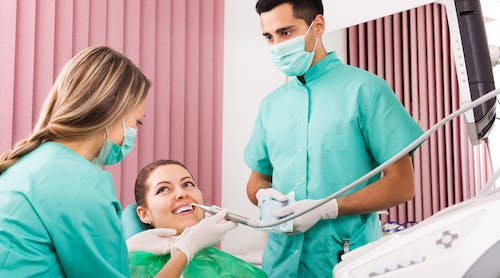
Learning basic dental terms in the local language
To ensure effective communication at the dental clinic, it’s helpful to learn basic dental terms in the local language. This can be as simple as knowing how to say “pain” or “tooth” in the local language. By having a basic understanding of key dental vocabulary, you can better express your concerns or explain specific tooth-related issues to the dental professionals. It also helps to familiarize yourself with any local dental-specific jargon or terms that may differ from what you’re accustomed to. This preparation can facilitate smoother communication during your dental consultations and treatments.
Finding and utilizing translation tools and apps
In today’s digital age, translation tools and apps have made communication across language barriers easier than ever before. Take advantage of these technological advancements by finding and utilizing translation tools and apps that are specifically designed for dental tourism. These tools often offer real-time translations, pronunciation assistance, and helpful phrases that can be useful during your dental appointments. Consider downloading and using these applications before your trip, as they can provide invaluable support in bridging the language gap between you and the dental professionals.
Contacting dental clinics in advance for language support
To ensure a smooth dental tourism experience, it’s advisable to contact dental clinics in advance to inquire about language support. Some clinics may have staff members who can communicate effectively in English or provide access to professional interpreters. By reaching out to the clinics before your trip, you can discuss your language needs and determine if the clinic is able to accommodate them. This proactive approach can help alleviate any communication concerns you may have and increase your confidence in the dental professionals’ ability to understand and address your dental needs.
Communication at the Dental Clinic
Clear communication is vital when it comes to dental procedures, and overcoming language barriers at the dental clinic is essential for a successful treatment. There are several strategies you can employ to enhance communication during your consultations and treatments.
Importance of clear communication for dental procedures
Clear communication is of utmost importance when it comes to dental procedures. Effective communication ensures that the dental professionals fully understand your dental concerns, treatment preferences, and expectations. It also allows you to comprehend the procedures, instructions, and potential risks involved. By maintaining clear communication throughout your dental journey, you can minimize misunderstandings and maximize the effectiveness of your treatment.

Strategies to overcome language barriers during consultations
When faced with language barriers during dental consultations, there are several practical strategies you can employ. One approach is to use simple and concise language to convey your concerns. Break down complex explanations or questions into smaller, more manageable parts. Non-verbal communication, such as hand gestures or facial expressions, can also help convey your thoughts. Additionally, requesting visual aids, such as models or diagrams, can facilitate a better understanding of the proposed treatments. Remember, patience and a willingness to find alternative ways to communicate are key when navigating language barriers.
Using visual aids and diagrams to enhance understanding
Visual aids and diagrams can be powerful tools for enhancing understanding during dental consultations. They can help overcome language barriers by presenting information in a visual format that transcends language differences. Dental professionals may use models to demonstrate treatment procedures, show before-and-after images, or provide diagrams that illustrate dental conditions. These visual aids allow you to visualize the proposed treatments, ask relevant questions, and ensure clear communication with the dental professionals.
Signing a consent form in the local language
To ensure legal and ethical compliance, it is customary to sign a consent form before undergoing any dental procedure. In dental tourism, this can pose a communication challenge if the form is in the local language. To navigate this situation, it is advisable to request a translated version of the consent form or seek assistance from a bilingual staff member or interpreter. It’s essential to fully understand the contents of the consent form and feel comfortable with the treatment plan before signing it. Clear communication regarding the procedures, potential risks, and expected outcomes is crucial for informed consent.
Seeking Language Assistance
When facing significant language barriers, seeking language assistance can greatly improve your dental tourism experience. There are various options available to help bridge the communication gap and facilitate effective interaction at the dental clinic.
Using professional interpreters
One of the most effective ways to overcome language barriers is by using professional interpreters. These individuals are trained in interpreting and can ensure accurate and clear communication between you and the dental professionals. Professional interpreters can be arranged by the dental clinic or sought independently through language service providers. By having an interpreter present during your dental consultations and treatments, you can have peace of mind knowing that your needs are being effectively conveyed and understood.
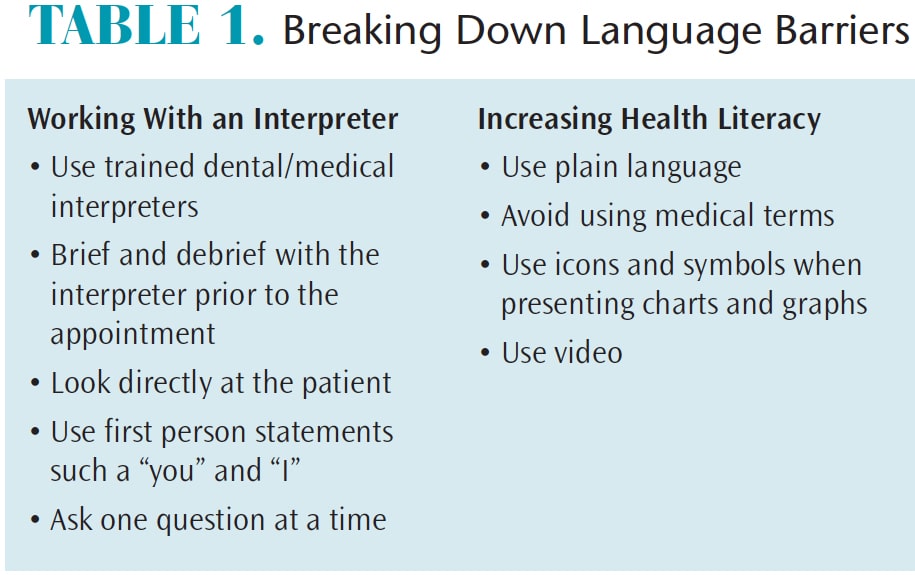
Hiring bilingual dental assistants or coordinators
Some dental clinics catering to dental tourists may employ bilingual dental assistants or coordinators who can assist with translation. These individuals can bridge the communication gap between you and the dental professionals, ensuring a smoother and more streamlined experience. Bilingual dental assistants or coordinators can help you understand the treatment procedures, answer your questions, and address any concerns you may have. Their presence can provide additional support and reassurance throughout your dental journey.
Finding local guides to assist with translations
In some cases, finding local guides who are proficient in both English and the local language can be a valuable resource for overcoming language barriers. Local guides can accompany you to the dental clinic, help with translations, and provide cultural insights. They can also assist with any additional needs or concerns you may have during your dental tourism trip. Hiring a knowledgeable local guide not only helps with language assistance but also enhances your overall travel experience by offering insights into the local culture and attractions.
Technology and Language Solutions
The advancement of technology has provided dental tourists with various tools and devices that can assist in overcoming language barriers. These technological solutions can supplement your efforts to communicate effectively with dental professionals and ensure a smooth dental tourism experience.
Utilizing modern translation devices
Modern translation devices such as pocket translators or portable language translation devices can be helpful in facilitating communication at the dental clinic. These devices utilize advanced speech recognition and translation technology to provide real-time translations. You can speak into the device in your native language, and it will translate your words into the desired language for the dental professionals to understand. These devices are portable and easy to use, making them a convenient tool to overcome language barriers.
Exploring smartphone apps for real-time translation
Smartphone apps that offer real-time translation can be incredibly useful when navigating language barriers in dental tourism. These apps often utilize voice recognition technology to provide instant translations. With a simple click on your phone, you can speak into the app, and it will translate your words into the desired language. Some apps even offer offline functionality, which can be beneficial in areas with limited internet access. Take the time to explore the available apps and find one that suits your needs and preferences.
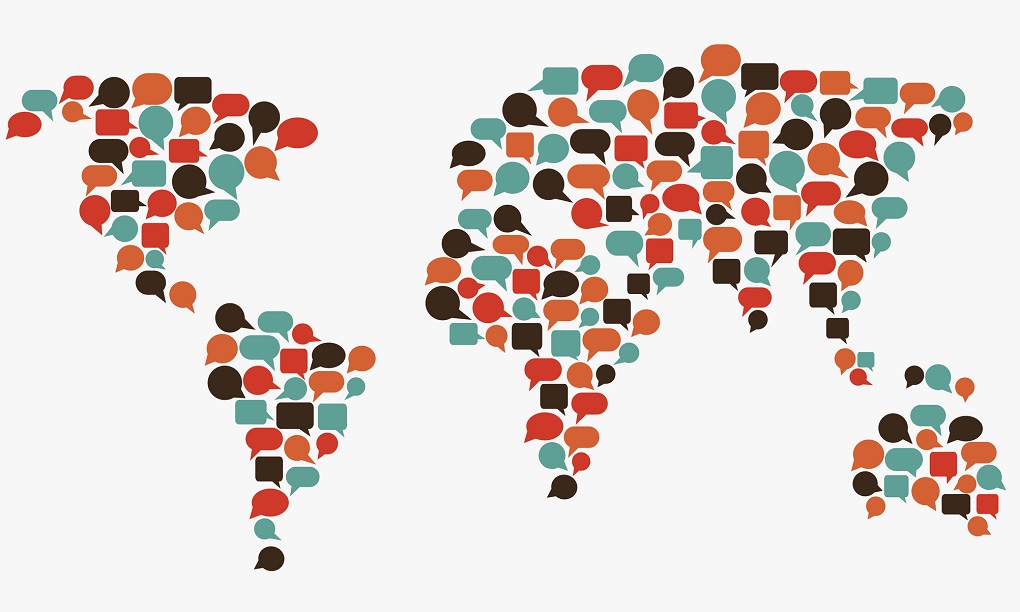
Using voice-to-text apps to facilitate communication
Voice-to-text apps can be a valuable tool for facilitating communication during dental consultations. These apps convert spoken words into written text, allowing you to communicate with the dental professionals in a way that transcends language barriers. Simply speak into the app, and it will transcribe your words, which can then be shared with the dental professionals. This method can ensure clarity and avoid miscommunication, especially if there are language nuances that may be lost in translation. Consider using voice-to-text apps as an additional aid in overcoming language barriers during your dental treatments.
Cultural Sensitivity and Communication
Navigating language barriers in dental tourism goes beyond understanding the spoken word. It is equally important to be culturally sensitive and adapt your communication style to facilitate effective interaction with dental professionals.
Understanding cultural norms and etiquette
Each country has its own unique set of cultural norms and etiquette. Being aware of these cultural nuances can help you navigate communication challenges more effectively. Take the time to familiarize yourself with the local customs and traditions, as well as any dental-specific cultural practices. This awareness allows you to show respect and appreciation for the local culture, fostering a positive and meaningful interaction with the dental professionals.
Adapting communication styles for effective interaction
Adapting your communication style to suit the cultural context can significantly enhance your interaction with dental professionals. Some cultures may prioritize indirect communication or non-verbal cues, while others may value directness and explicitness. Observing and adapting to the communication style of the dental professionals can create a more harmonious and productive environment. By being flexible and open-minded in your approach, you can establish rapport and effectively convey your dental needs.
Respecting different attitudes towards dental care
Different cultures may have varying attitudes towards dental care and oral health. Some countries may prioritize preventive dental care and regular check-ups, while others may focus more on treating dental issues when they arise. It’s important to respect these differences and understand that dental professionals in different countries may have varying approaches to treatment. By keeping an open mind and engaging in constructive dialogue with the dental professionals, you can learn from their expertise and make informed decisions regarding your dental health.
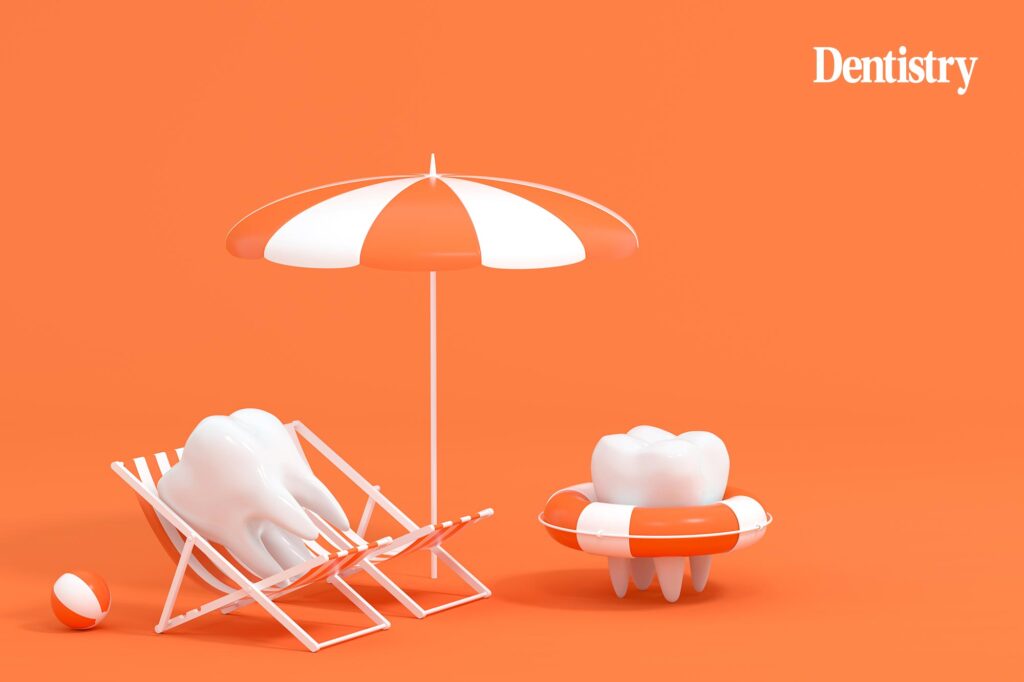
Managing Expectations
Effective communication is essential in managing expectations when undergoing dental treatment abroad. Clear and transparent communication ensures that both you and the dental professionals have a shared understanding of the treatment plan, expected outcomes, and any potential language-related challenges.
Discussing treatment plans and expected outcomes in detail
To manage expectations effectively, it’s crucial to discuss the treatment plans and expected outcomes in detail with the dental professionals. Ask questions about the proposed treatments, inquire about alternative options, and seek clarification on any aspects that you do not fully understand. By engaging in open and honest communication, you can gain a realistic understanding of what to expect during and after the dental treatment.
Clarifying any language-related concerns beforehand
If you have any specific concerns regarding language barriers, it’s important to address them with the dental professionals beforehand. Express your worries or doubts about effective communication and seek reassurance that the dental clinic has measures in place to support you. By clarifying any language-related concerns in advance, the dental professionals can provide additional support, such as using visual aids, simplifying explanations, or arranging for translation services.
Preparing for potential challenges due to language barriers
While efforts can be made to overcome language barriers, it’s essential to be prepared for potential challenges that may arise. Recognize that there may be instances where communication is not completely seamless, and remain patient and adaptable. Have realistic expectations and be open to finding alternative ways to communicate. With the right mindset, you can navigate these challenges and still have a successful dental tourism experience.
Post-Treatment Care
Clear communication continues to be important even after the completion of your dental treatment. Proper post-treatment care is essential for your oral health, and understanding the instructions for aftercare is vital. Here are some tips for effectively communicating post-treatment care instructions.
Receiving clear instructions for aftercare in a familiar language
When undergoing dental treatment abroad, it is crucial to receive clear instructions for aftercare in a language you are comfortable with. Make sure the dental professionals provide you with written instructions or explanations that you can refer to. If necessary, request translations or use language assistance tools to ensure that you fully understand the post-treatment care requirements. Following these instructions diligently can help ensure optimal healing and long-term success of your dental treatment.
Using translation services for follow-up communication
If you have any questions or concerns regarding your post-treatment care, consider utilizing translation services for follow-up communication. Whether it’s reaching out to the dental clinic via email, phone, or messaging apps, having access to translation services can help bridge any language gaps. By seeking clarification or additional information, you can address any uncertainties and maintain proper oral care during the recovery period.
Seeking assistance from local dental professionals back at home
Upon returning home from your dental tourism trip, it may be beneficial to seek assistance from local dental professionals for follow-up care. Local dental professionals can ensure a smooth transition and provide continuity of care by assessing the healing process and monitoring any potential issues. By communicating your previous dental treatment and any language-related concerns to your local dental professionals, they can provide the necessary guidance and support for ongoing oral health maintenance.
Patient Reviews and Recommendations
When researching dental clinics and destinations for dental tourism, patient reviews and recommendations play a significant role. Language-related feedback and experiences can provide valuable insights into the communication challenges you may encounter during your dental tourism journey.
Reading reviews from previous dental tourists
Reading reviews from previous dental tourists can provide helpful information about the language-related experiences they had at various dental clinics and destinations. Look for reviews that specifically mention the communication aspects, highlighting any language barriers they faced and how they were overcome. Positive reviews that mention effective communication can give you confidence in the dental clinic’s ability to accommodate English-speaking patients.
Considering language-related feedback and experiences
Consider language-related feedback and experiences shared by dental tourists to gain a deeper understanding of the potential challenges you may face. Pay attention to any recurring themes or common concerns related to communication. These insights can help you prepare ahead of time and ensure that you are adequately equipped to navigate language barriers during your dental treatment.
Seeking recommendations from trusted sources
Seek recommendations from trusted sources, such as family, friends, or online dental forums, to further validate your choice of dental clinic or destination. Personal recommendations can provide firsthand accounts of the language-related experiences of others, giving you a more comprehensive picture of what to expect. By relying on trusted sources, you can have a higher level of confidence in your decision and feel reassured that you have chosen a dental clinic that will meet your communication needs.
Improving Language Skills for Dental Tourism
While there are various strategies and tools available to overcome language barriers in dental tourism, improving your language skills can significantly enhance your overall experience. Here are some tips for enhancing your language skills specifically for dental consultations.
Learning language basics for dental consultations
Learning the language basics for dental consultations can greatly improve your ability to communicate with dental professionals. Start by focusing on essential dental vocabulary and phrases that are commonly used during appointments. Basic phrases such as “I have a toothache” or “Can you please explain the procedure?” can go a long way in facilitating clear communication. Invest time and effort in studying these language basics to build your confidence and increase your ability to effectively communicate with dental professionals.
Exploring language courses or online resources
Language courses or online resources specifically tailored for dental terminology can be valuable tools for improving your language skills. These courses and resources are designed to teach you the necessary dental vocabulary and phrases for effective communication at the dental clinic. Consider enrolling in a language course or accessing online resources that cater specifically to dental consultations. These resources can provide structured learning and interactive exercises to help you grasp and practice the language skills needed for successful dental tourism.
Attending language immersion programs
For those who are eager to immerse themselves in the local language and culture, attending language immersion programs can be an excellent option. Language immersion programs provide an intensive learning experience where you can focus on developing your language skills within a cultural context. By immersing yourself in the local language, you not only enhance your ability to communicate during dental consultations but also gain a deeper appreciation of the culture and customs of your chosen dental tourism destination.
In conclusion, navigating language barriers in dental tourism requires careful preparation and effective communication strategies. By thoroughly researching popular dental tourism destinations and understanding the availability of English-speaking dental professionals, you can choose a destination that suits your needs. Preparing before your departure by learning basic dental terms, utilizing translation tools, and contacting dental clinics for language support will help facilitate communication at the dental clinic. Seeking language assistance, utilizing technology and language solutions, and being culturally sensitive in your communication can further enhance your dental tourism experience. Managing expectations, ensuring clear post-treatment care instructions, and considering patient reviews and recommendations are also important aspects to consider. Finally, improving your language skills through language courses, online resources, or language immersion programs allows you to communicate more effectively during dental consultations. With these tips and strategies, you can confidently navigate language barriers and have a successful dental tourism journey.
